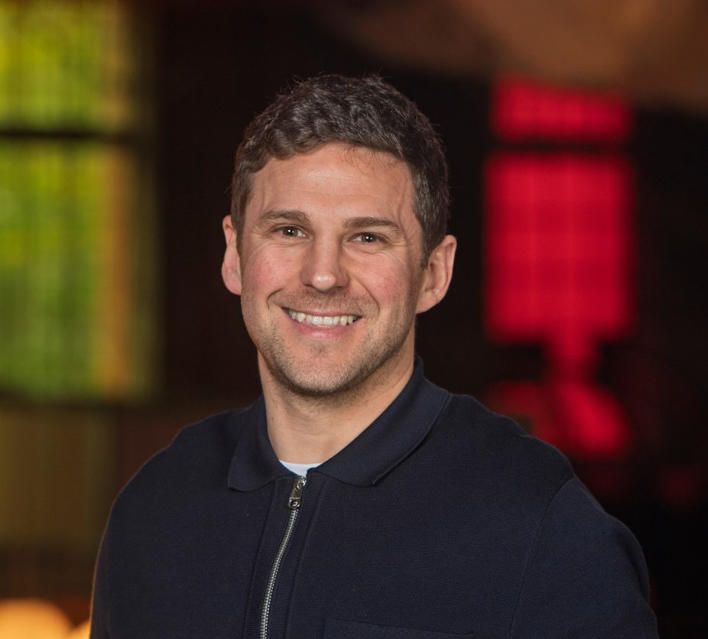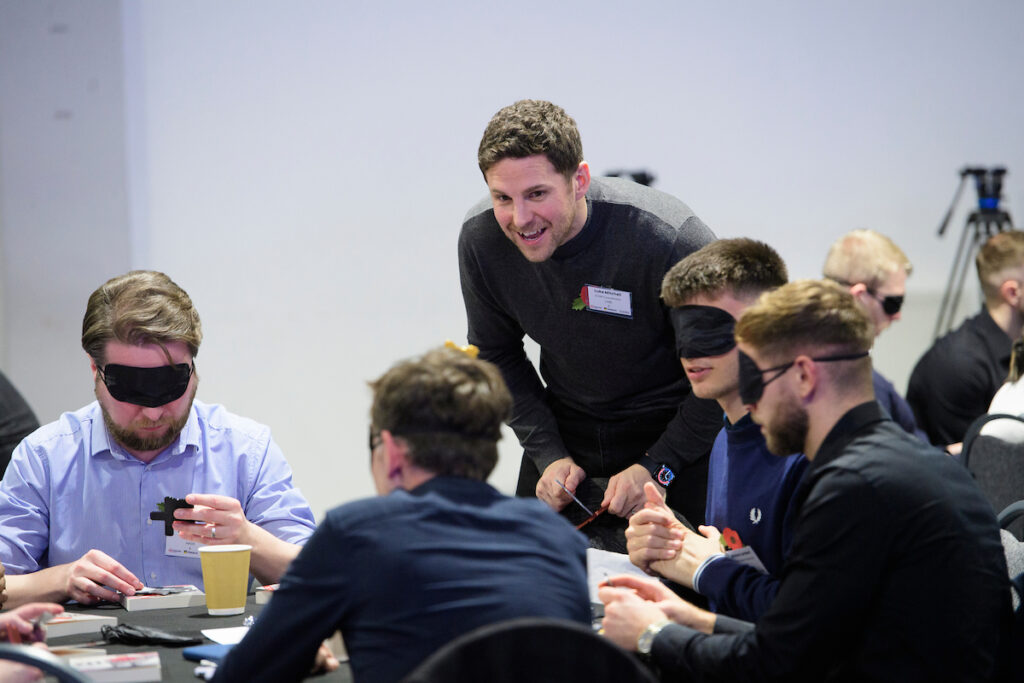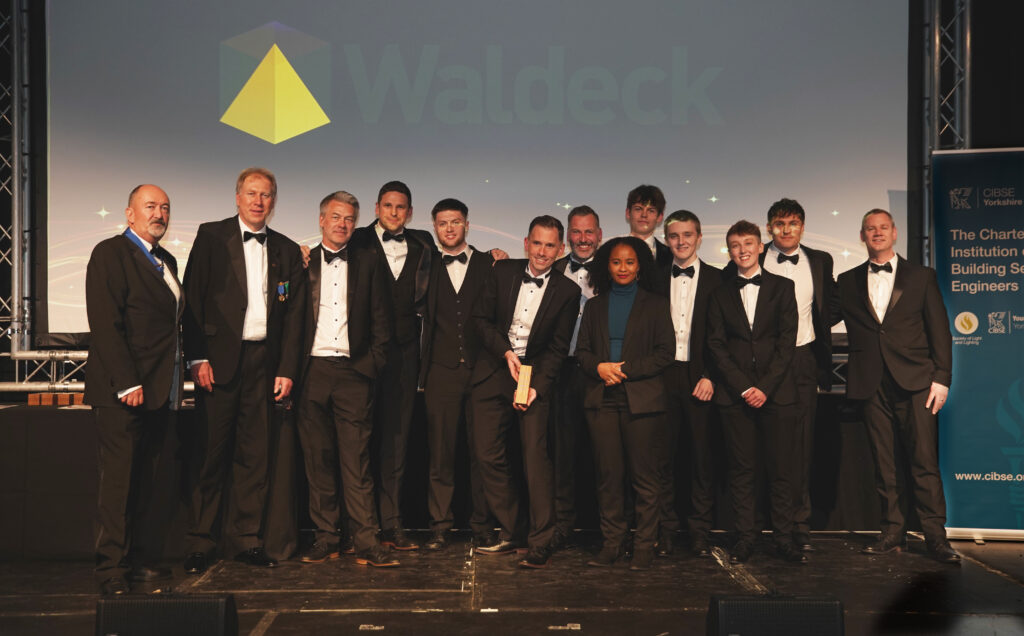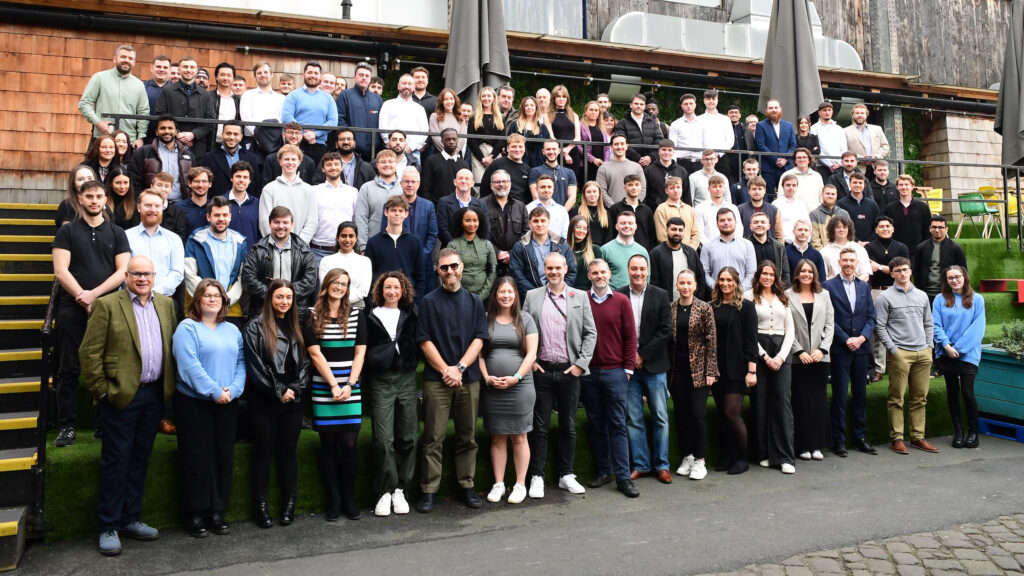Alongside Luke’s role as Associate Director, he is also a Mentor Co-ordinator and Mentor for our Early Careers Development Programme. He oversees and supports the team of Waldeck mentors, ensuring they have the resources and guidance needed to provide meaningful mentoring experiences.
Luke says “Mentorship is about fostering curiosity and confidence – two things that fuel a successful career in engineering.”
We caught up with Luke to hear more about his journey that led him to a successful career at Waldeck and an additional role as a Mentor and Mentor Co-ordinator.
Hi Luke! Why did you choose to become a mentor?

I became a mentor because I genuinely enjoy helping others discover their strengths and potential. Mentoring is also a way for me to give back to an industry that’s given me so much.
Sharing the lessons I’ve learned—both successes and challenges—can make the path smoother for those just starting out.
Please can you tell us a bit about your mentoring experiences so far…
My mentoring experiences have been incredibly rewarding. Every mentee brings unique skills and perspectives, and I enjoy adapting my approach to best support their individual growth. It’s inspiring to watch them tackle challenges and gain confidence as they develop professionally.
What motivates you in your work?
What motivates me most is the impact our work has, both on the people we mentor and the projects we deliver. Seeing young professionals step up with fresh ideas and the confidence to make a difference really energises me.
Also, knowing that the mentorship program strengthens our team’s future keeps me focused on creating valuable experiences for others.
What do you enjoy most about being a mentor?
I enjoy witnessing those moments when something clicks for a mentee. Whether it’s a technical insight or a confidence boost, seeing them make breakthroughs is extremely fulfilling. Mentorship is as much about personal growth as it is about professional development, and that’s a privilege to be part of.


What kind of growth or changes have you seen in your past mentees?
I’ve seen mentees become more independent and assertive in their roles. They start asking the right questions, making proactive decisions, and coming to the table with solutions rather than problems. This transformation, seeing them become leaders in their own right, is one of the best parts of mentoring.
What challenges do you often face in mentoring, and how do you suggest dealing with them?
One challenge is helping mentees navigate self-doubt, especially when they face setbacks. I encourage them to view challenges as learning opportunities and to keep a growth mindset. Being patient and supportive but also gently pushing them out of their comfort zones is key.
What advice would you give someone considering becoming a mentor?
My advice is to focus on listening and building trust. It’s essential to understand what your mentee hopes to achieve. Be approachable and adaptable, as each mentee has their own goals and learning style. And remember, mentoring is a two-way street, you learn as much as you teach.
What do you think makes a good mentor? How have you developed these traits over time?
A good mentor is patient, approachable, and genuinely invested in their mentee’s success. Over time, I’ve worked on my listening skills and learned to guide without controlling. I also think that self-reflection is important, you can only improve as a mentor if you’re open to feedback and willing to grow.


How do you typically structure your mentoring relationships?
I like to set clear goals with my mentees at the start, so we have a roadmap to follow. Regular check-ins help track progress and adjust the approach if needed. It’s about creating a safe, supportive environment where they feel comfortable asking questions and trying new things.
What books, resources, or people have influenced your career the most?
Books like The Lean Startup by Eric Ries and Atomic Habits by James Clear have been good books to read and helpful in shaping my approach to both work and mentoring.
I’ve also been inspired by colleagues who demonstrate leadership and adaptability in challenging situations, watching them has shown me what effective mentorship looks like in real life.
Feeling inspired? Follow the link to hear more from our mentoring team>